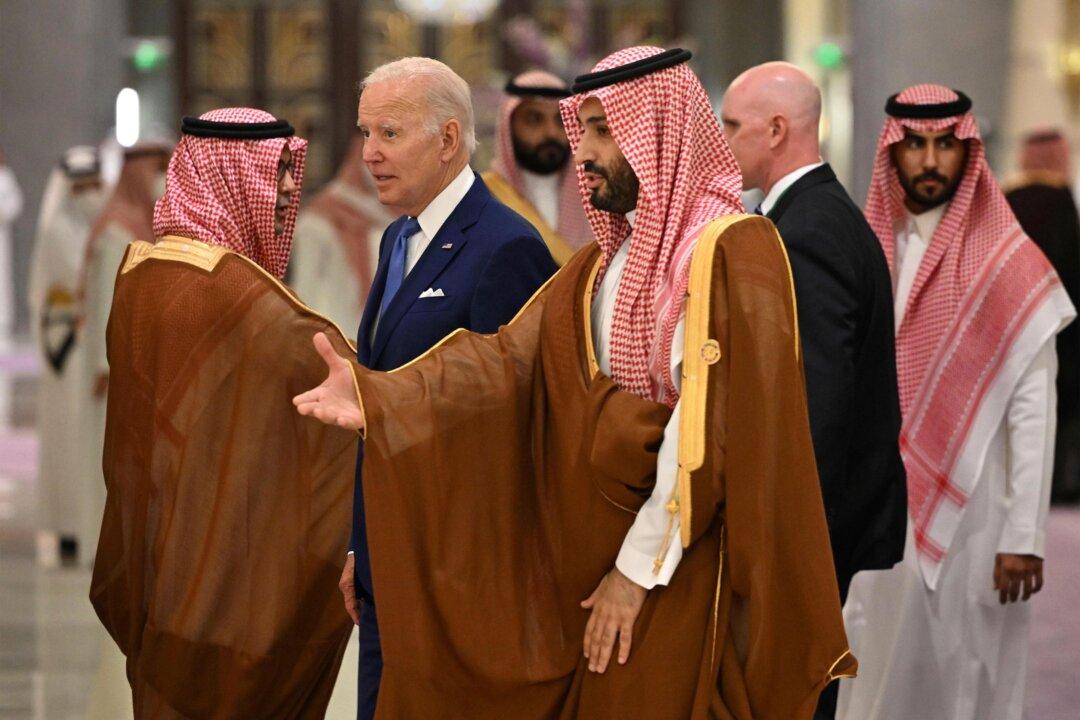JEDDAH, Saudi Arabia—President Joe Biden, speaking at a summit of Arab leaders, said Saturday that the United States “will not walk away” from the Middle East as he tries to ensure stability in a volatile part of the world and boost the global flow of oil to reverse rising gas prices.
His remarks, delivered at the Gulf Cooperation Council on the final leg of a four-day Middle East tour, came amid concerns about Iran’s nuclear ambitions and support for terrorists in the region.





